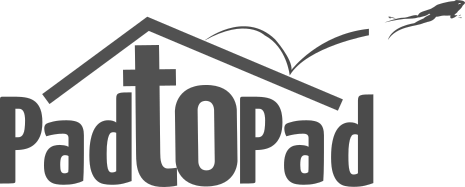You can’t read a paper these days without crossing paths with dramatic headlines about economic distress, extreme volatility in the equity markets, and a general feeling of financial malaise brewing in various pockets of the globe.
Even the most casual observer can string together with some ease, the relationship between cause and effect, poor economic data, consumer confidence, sluggish spending, and sputtering economic growth.
Despite a flurry of analyst dartboard predictions with forecasts for growth and retraction, warnings about rising household debt and warnings about housing market collapse, contrasted with continued growth in the housing market, the real question is, what’s the average homeowner to do- especially when it comes to deciding on a fixed rate over a variable rate?
Things We Know
While interest rate activity is a bit of a dartboard throwing activity these days, there are certain fundamentals at play, suggesting while we can’t tell exactly in what direction rates are going to go- and when, but we may be able to draw some conclusions from the economic context that is currently present- as well as what we know from history.
Historically, data typically shows that variable rates are more attractive over the long term. According to research from the Bank of Montreal, since 1975, the most cost-effective option for borrowers was to stay variable 83 % of the time.
Also, we know that, while Canada has many economic foundations firmly in place, there are an abundance of risks present outside our borders, particularly in the case of the growing sovereign debt crisis overseas, and talk of a US recession on the horizon; there are just simply too many factors present to suggest that a rate hike is anywhere on the horizon. In fact, BMO Economic released a report this week stating that rate hikes in Canada are likely off the table now until 2013.
Although employment numbers are good in Canada and the housing market is robust, there has been talk of the possible need for further monetary easing in the coming months, depending on how deeply the impact is felt from the economic trouble brewing elsewhere.
Again, this does not tell us the when and the how much for interest rates- nor does it suggest the intrinsic strategic value of choosing to roll the dice with a variable rate over locking in with a fixed rate- but it helps frame the decision.
Trish Pigott, Broker/Owner, Primex Mortgages, in Coquitlam, B.C, says one thing to point out to clients, is that they are currently in a unique win/win situation: “At this point in time, you can’t go wrong with what ever your choice is. Rates are at historical lows on the fixed side and very close to all time lows on the variable. Choosing between a fixed and variable is a personal choice depending on the comfort level and risk tolerance for each applicant.”
Ally and Partner
In turbulent times, there is an opportunity for those in client-centric, relationship based business.
People who are fundamentally nervous, seek reassurance and guidance from other rooted in training and experience to help guide them towards making decisions that not only are the best suited for them personally- but are best suited for them in the economic climate which provides context for their financial circumstance.
In times of trouble, people not only seek support- they seek professional partnership. How to best communicate this to clients, and how to advise them in the current climate. Julia Krause, Kelowna B.C. Mortgage Broker, suggests that clearly defining your role as a broker, and as an advisor has a lot to do with sharing your knowledge with your clients- and making them active participants in the process. And with an eye to setting the perimeters for the partnership, Krause throws the concept of ‘advice’ out the window.
“I don’t give advice. I educate. I help my clients to make an informed decision. We determine what is most important to the client, and what option ‘feels’ right to them, and go from there. I explain exactly how variable rate and fixed rate mortgages work, how ‘split term’ mortgages work, how the ‘prime rate’ works, and how I will keep them informed on what’s happening with interest rates & the economy (via my regular newsletter) and that they can call me any time, before during, or after, if they have questions.”
Pigott says that the time is now for her clients to take a good look at their financial picture, before they fully decide what makes most sense for them. “(Clients need) to look at their overall finances. If they can afford a payment increase if the variable rate goes up, and it will not make a significant impact on their household budget then they may want to consider a variable rate”
“As well, the ideal variable candidate would have more than 20% equity in their home but if their financial situation is strong enough to handle the fluctuations, then ultimately it’s the client’s decision. I will do my best to provide them with the facts and details surrounding each product which will help them decide the best fit for their lifestyle and budget. That being said, I may also recommend a client that is on the fence on what to choose, to take the variable rate with a set payment and remind them that they have the ability to lock in at any time without penalty if they begin to feel uncomfortable.”
The House isn’t just a Home
Although a home functions as shelter, it is often one of the largest assets held in a portfolio- and it is the most leveraged asset usually as well.
It also may be worth having your clients think about their total financial holdings- not just their real estate asset part of their portfolio.
It is a well known fact, that diversification is one of the best ways of mitigating against risk, and depending on what their other holdings are in their investment portfolios, including their RRSP’s and non-registered assets they may want to include that in their decision making process- and you may want to suggest to them to consult their financial advisors as well.
If a client trying to decide between a fixed rate and a variable rate mortgage is highly invested in risky equities, they may want to consider a fixed rate in order to mitigate against a double hit of a falling stock market- coupled with rising interest rates. Economic data currently suggests that rates will stay low for the time being, but there are no guarantees.
It is important to remember, in this instance that owning a home is not just for purposes of shelter- but that it is an investment- and may be part of a larger pool of investments. As such, it is sometimes wise to use principles of balance within the portfolio, to balance out net worth.
As a mortgage broker, you obviously are not going to advise your clients on other investments, but this goes back to partnership. Home ownership, and interest rate strategy can either help or hurt the total investment value- and it is worthwhile to have your client consult other members of their financial team so that they can make the best decision for them, in the current environment.
Know Your Client
What is comes down to, fundamentally- is knowing your client- and matching the right product to the right person.
To draw on historical data, and make a case for either or, really only takes into account the financial implications. What is probably more important, and more impacting on a daily basis for the client- is how much they are going to be thinking about their mortgage rate, when they should be thinking about other things.
Krause says, “For me personally, I choose variable rate. But there isn’t one better option for every person across the board. The better option depends on the individual client. This is why mortgage brokers are supposed to get to know their clients and their clients’ individual situations, then educate the client on the options, then decide together what the best option is. If your mortgage broker isn’t doing this, RUN. Run away.”
And as Pigott points out, a mortgage is for the long term. “It’s all about risk tolerance and comfort level. For a client that is extremely rate conscious and concerned about fluctuating rates, I would say that they should choose the fixed rate. When you are taking a mortgage, most people know they are going to have that mortgage for a long time, so stressing over the rate morning and night is not worth it. Take the fixed rate, give yourself peace of mind. For clients that have that higher tolerance and are willing to flow with the market and able to financially handle increases, then they would be able to comfortably take the variable rate. “
Krause, on the other hand, says that ‘risk’ is in the eye of the beholder- or the rate holder as the case may be- and that the risk can be mitigated somewhat : ”Where is the ‘risk’ in having a variable rate mortgage? Variable rate mortgages are about paying as little interest as possible and taking advantage of prime while it’s at record low levels. There’s nothing wrong with that. But again, as a mortgage broker I’m different. I have actual relationships with my clients. I keep them up to date on what’s happening with interest rates. I won’t allow any ‘risk’.”
Fundamentally, you need to compare apples to apples. Looking at historical data, and where rates are coming from, and where they are likely headed- touting the financial benefit to a client is irrelevant. The volatile environment in which we find ourselves currently, underscores the need to connect with clients, foster that relationship for the long term, and understand where they are coming from to steer them in the right direction.

